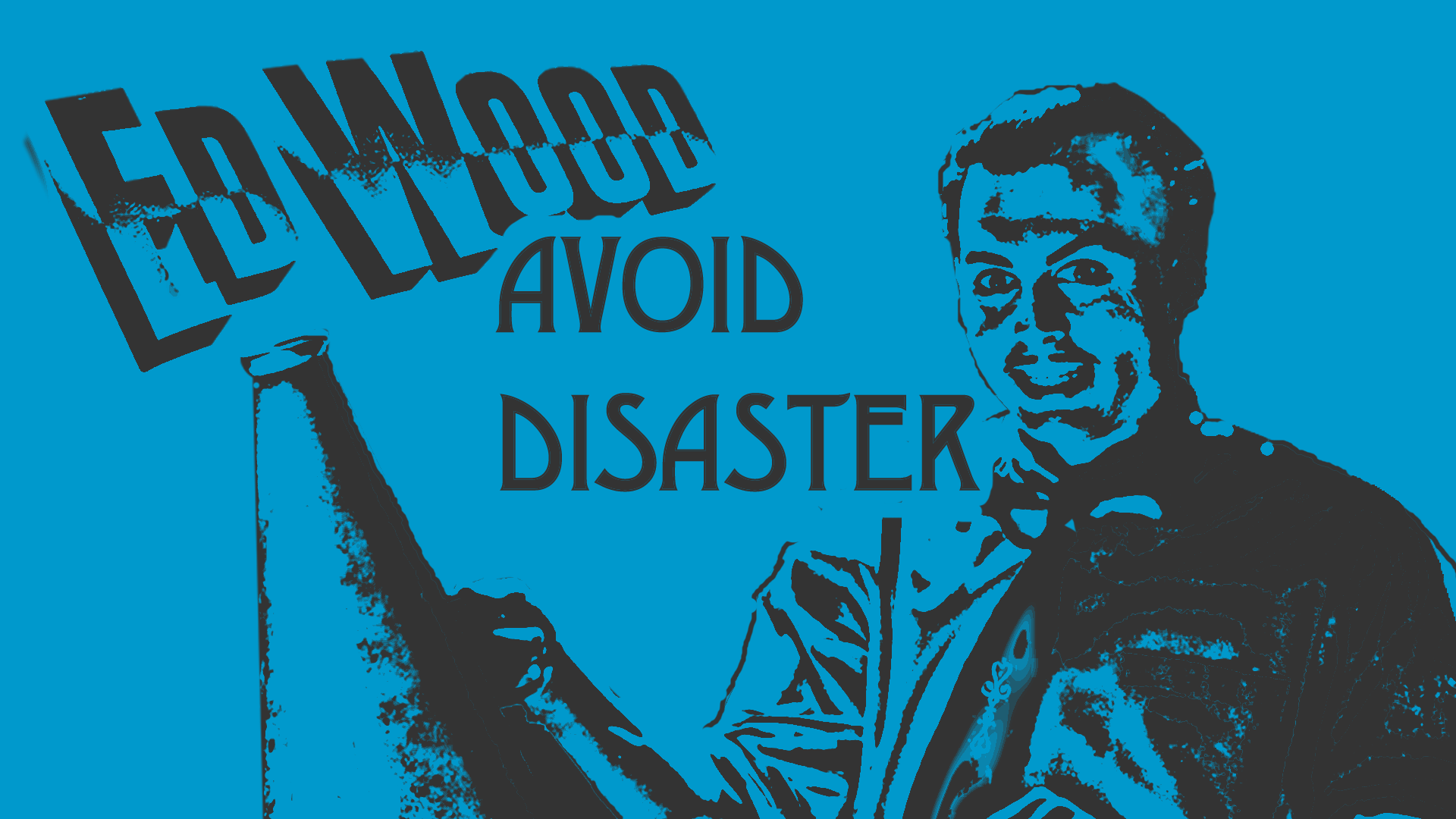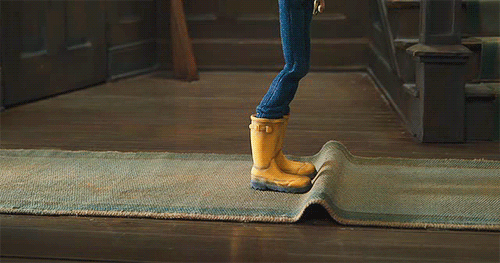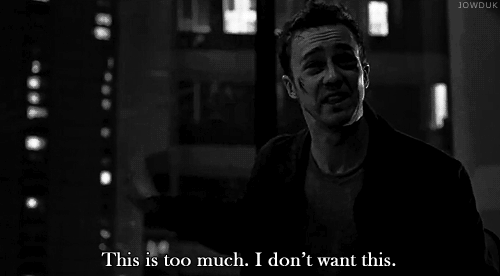 Read this if you are:
Read this if you are:
• A 1st time feature director
• A 1st time feature producer
• Working with either
Maybe you’re aware of Quentin Tarantino’s first feature film, or Richard Linklater’s? No, not Reservoir Dogs or Slacker.
Both Tarantino and Linklater made full feature films before their breakouts, which are commonly referred to as their first films. The thing is, little to no one ever saw those original movies.
Conversely, Darren Aronofsky and Steven Soderbergh hit the ball out of the park with their first films, Pi and Sex, Lies, and a Videotape, respectively.
These four filmmakers began within a few years of each other and made their first films on tight budgets. Two of those films disappeared forever and two became indie classics. Two are remembered and two can’t be.
The common thread is each of these filmmakers learned every lesson they needed for future success and improvement on those first films. The films served their makers enormously, informing their processes and theories for decades to come.
When Michael and I made Painted City between ages 19-21, we were filled with passion and drive. This feature was to change our lives forever.
We busted ass on it. We worked obscenely hard for an obscenely long time with obscenely unconventional methods and an obscenely low budget. The result: we made an obscenely disjointed and messy film that took years to finish and lead us nowhere.
But, we learned an obscene amount! We took away lessons from Painted City that neither of us will ever forget.
Though that film is now lost in the ether forever (and for the better), I want you all to benefit from some of those lessons, and set yourselves up for success while undertaking your first feature films! These are also lessons we’ve learned watching other first-timers fail and succeed.
So here are the main mistakes filmmakers can make on their first feature:
1) LOSING FOCUS

It’s easy to get caught up in the grind of getting your feature made. All the plates being balanced make focusing difficult.
It’s tempting to incorporate new ideas that may inspire you, but might not fit your narrative.
Painted City suffered greatly because I struggled to keep focus. At 20 years old, I was taking in more films than ever before and being inspired with fresh content. New ideas and techniques arose frequently that I wanted to test.
I was rewriting scenes and shooting experimentally far too much, without focusing on the overall story I was trying to tell.
The result movie was trying to be many things without cohesion.
It’s crucial to stay focused on the task at hand and think of each shot as it relates to the entire film. Especially on your first feature, keep experimentation to a minimum, unless of course your goal is to make an experimental film.
Don’t get distracted by all the possibilities after you’ve begun shooting—shoot the movie you’re making at that moment; save other ideas for a later project.
2) HIRING AMATEUR ACTORS

While it’s tempting to hire actors with little experience or cast friends in key roles, it can provide a false sense of security that come with a million problems.
Inexperienced actors/non-actors often lack the confidence and experience to move at the pace required of a low budget film.
Unless you have indefinite commitments from performers, you’ll likely be working on a tight timeline. All involved need to show up ready and able to perform at a superhuman pace, with instincts trained.
Issues like performers’ inability to memorize lines and needing multiple takes will hold up your production’s momentum, unless you’ve planned well, worked with them, and are balancing them out with simple demands and/or more experienced scene-mates.
Watching the bottom line is key to making your first film, but don’t let this show on the screen. Your actors are your film’s face—don’t skimp on the talent.
3) WORKING WITH PROFESSIONAL EGOS

This is not a knock on the many talented actors out there but (drum roll) many of them require a lot of attention.
Whether they’re so focused on their craft that they need a lot of patience, or they’re just straight up difficult, talented and experienced performers come in all shapes and sizes; no two are the same.
On Painted City, Mike and I worked with incredibly experienced actors who showed up ready and needed little guidance; we also cast the other, more difficult side.
For your first feature on a shoestring budget, you need collaborators with the perfect balance of experience, and self-sustainability. Again, you’ll be moving fast.
If you get the slightest feeling that someone may come with detrimental attitude or an ego, I say pass on them. To steal the Duplass brothers’ term, we’ve taken care to institute a “no asshole” policy” on our films since Painted City.
We worked with a few—some of whom dragged us through the mud and didn’t even show up to set. Choose your collaborators carefully so they show up ready to work fast, hard, and bring their A-game.
4) LOSING YOUR PASSION

Your passion and drive are all that will get you through the grueling, thankless process of producing your first feature film.
Passion was all that sustained Michael and I on Painted City. We shot the movie on weekends and school breaks throughout the course of a full year. We had school work and jobs running against us.
If you’re doing your first feature, you’re likely in a similar boat, so be sure to keep your passion alive. Do checkins with yourself if need be, and find ways to make the project fun, while at your most exhausted.
Additionally, let your passion show with your collaborators. I truly believe, the main thing that has kept my collaborators around through two feature films that paid little or nothing is my passion for each project.
I’ll never take on a film I’m not excited to spend a long time on, and I want those working with me to be equally invested, emotionally. The payday will likely be low to zero on your first features, so make everyone proud of the work.
5) “FIXING IT IN POST”

Erase this term from your lexicon before embarking on your first feature film.
The available technology these days is amazing, but bad location sound and lighting are relatively unfixable. They’ll stick out like a sore thumb, especially if they only appear in a few scenes.
You won’t have the budget for the multiple thousands of dollars in plug-ins to fix muddy sound. You won’t have the luxury of reshoots to match a bad angle to a good reverse.
Fixing it in post is damn near impossible. Get it as right as you can on set.
6) BEING TOO AMBITIOUS

You need ambition to make your film and the more ambition you have the more likely you are to finish the project, right? Well, sort of.
Being ambitious enough to make your film puts you miles ahead of many peers, but trying to make a film that’s too ambitious is the harakiri of independent filmmaking.
Painted City began as an impressive script. Many people read it and liked it, seeing promise in the content, characters, and ideas. But it involved too many locations, speaking parts, and elaborate sequences.
These are issues that non-filmmakers who read your script won’t be able to warn you of; they have no idea what goes into making a movie.
It’s on you to both look for these potential roadblocks and rely on collaborators to remind you before your production even begins. Find friends and colleagues who are willing to question your abilities to execute a scene and force yourself to explain.
You need to ensure your first feature is completely achievable on the budget you have. Set out to make the best thing you can with the resources you actually have.
7) NOT HAVING ENOUGH AMBITION

Your first feature will likely be the most bare-bones film you ever make. Therefor, you need to believe in it. You need to know this is something you’ll be in for the long haul.
Most people who set out to make feature films never finish them. Most finished films never get seen, and even fewer filmmakers who make first features make a second.
You need to approach your project with an ambition to complete it from the beginning. On top of that, you need to ambitiously try making the best possible film you can.
8) FOCUSING ON VISUALS ALONE

When I directed and shot Painted City, I was obsessed with the visual language of cinema.
I was trying every possible composition I could, and therefore neglecting the visual language of that film. I also neglected certain performances, most of the audio, and attention to the story as a whole.
Visuals are often the most intriguing part of filmmaking for filmmakers, but a good film is comprised of many things: great narrative, great performances, great sound, and great overall storytelling. And great visuals.
Visuals are key, but they aren’t everything. You need to ensure you’re focused on all other aspects of the production to make sure your entire movie works instead of just a fraction of it.
9) TAKING TOO MANY RISKS

There are two types of risks here: storytelling risks, and production risks.
Storytelling risks are tricky because they often differentiate your voice from other filmmakers’, but they can also alienate an audience if not handled with care.
Production risks are often required when making your first bare-bones feature, but they can tread on very very dangerous territory.
It’s common for filmmakers to try too much in their first film and lose track of the narrative, as I mentioned I did with Painted City. Make sure every storytelling risk you take works within the context of your story, and justify each by being the audience.
As for production risks, Michael and I have had many conversations since Painted City about some of the chances we took, determining we did many downright stupid things.
We would never repeat the same risks today. This may seem like the words of two jaded, aging dudes. But, as indicated by last year’s tragedy, some risks just aren’t worth taking, no matter how simple and straightforward they may seem.
No one should be severely injured or killed to make a movie in this day and age, or ever. It’s not sexy or legendary, but downright dumb.
10) NOT TAKING ENOUGH RISKS

As I said before, the storytelling risks you take can define your cinematic voice, if they are well calculated.
There is a pretty textbook formula for indie films today. Look around at films coming out on the festival circuit and you’ll see it. There are also decades old conventions for genre and centuries old character archetypes.
Your job on your first feature is to break those conventions while keeping an audience engaged and wanting more. Break as many rules as possible without destroying your film and you’ll stand out. Take reasonable and thought out risks.
11) CREATING TOO MANY OPTIONS

Painted City got stalled out it post-production purgatory for well over a year. I’d shot too many variations on character and plot because the year of shooting was spread out and lacked focus.
When it came time to just get the damned thing done, I was forced to make choices too quickly, without help, and made an uneven film.
I highly recommend keeping your choices to a minimum on your first film. Make production and post as self-explanatory as possible to minimize the risk of letting the story get away from you.
It takes years of practice to “build a movie in post,” so save it for after you’ve made a few good films and know what that looks like. Minimize the amount of decisions you have to make while spearheading your film and you’ll ensure a better, more cohesive final product.
12) PLANNING POORLY (OR NOT AT ALL)

We jumped into Painted City with very little planning: we had a script, a little money, and a few key characters cast, but ultimately we had very little idea what production would look like.
We run-and-gunned it, planning days just before we shot them. Sure, there was vision involved, but a lot changed because we were forced to pivot.
This could have been avoided with a solid plan for executing each scene, involving each character and location. We never broke down the script into a schedule or budgeted out the details. We instead let it take as long as it could take.
Sure, we came in under-budget, but we also looked at the leftover money and thought, “we could’ve used that to make _________ better.”
On your first film, it’s crucial to plan. Plan thoroughly and save yourself the suspense.
13) NOT CONFRONTING THE FULL PROCESS, START TO FINISH

When you’re standing at the base of the mountain looking up, the last thing you’re thinking about is coming back down.
Starting out on Painted City, Michael and I were so overwhelmed with the process of making the movie, that we failed to see what following through actually necessitated. Just shooting the movie was hard enough—forget about post production, and beyond.
Almost everything seems simple from a distance: “I know how to edit, so that’ll be easy.” “Festivals will be huge for this movie once we get in.” “I’ll just put it up and sell it online.”
All of these statements may have a shred of truth, but there’s a gaping problem: you’ll get tired.
Each of these processes involve immense focus and a great deal of side-tasks. Festivals—if you get in—have loads of demands that take time, money, or both. Same goes for online delivery. Editing your own film can be a huge struggle, as it was for me the first time around.
Think of the big picture. Try looking up at the mountain before starting your climb and anticipating the entire journey.
14) RAISING TOO LITTLE MONEY

Many many films are made for budgets so ridiculously high I can’t even fathom what they spent the money on, but it’s common for indie and first-time filmmakers to use too little.
This was certainly true of Michael and I on Painted City. We started the movie in 2008 during the financial crash, so some of the money we thought we’d have fell through. On top of that we had no idea how to budget anything.
We were also too conservative with the $4,000 we had. We thought, “If Robert Rodriguez could do it for $7,000 in 1992, $4,000 is comparatively huge in 2008.
That would have been true if we’d had a simpler story and a plan. We certainly didn’t mismanage the money—we didn’t even use all of it, which ended up going to festival submissions and a premiere—but we didn’t truly understand how that money worked.
When you’re raising your first film’s budget, don’t just think of the end amount. Instead, look at your script and consider the costs of each thing on screen, each person involved, and what that all adds up to.
Then consider deals you can get and people who may show up for free or cheaper. Just because these people won’t cost you anything doesn’t mean you shouldn’t budget for them. You should know every possible dollar and what your film is worth.
Here’s a great article on breaking your script down in a professional way that will help you budget accordingly.
It’s easy to think, “I can definitely do it for $_______,” but you should aim to raise exactly what you’ll need and work from there. No more, and preferably no less.
15) COMMUNICATING POORLY

This is just a killer in every walk of life. We all know it, so I won’t belabor it.
Poor communication is the root of war, famine, corruption, and movies falling apart.
On your first film it is absolutely crucial to clearly communicate your expectations to everyone so no one feels mistreated, manipulated, undervalued, neglected, or the laundry list of feelings that arise when people are working super hard for little reward.
Be clear about what you’ll be needing from the beginning; everyone will walk in prepared, informed, and on the same page.
16) NOT ADAPTING TO COLLABORATORS

Everyone you ever work with will have unique approaches to their work, communication styles, and goals.
It is important to maneuver between these individual personalities in a way that unites everyone on your team. On your first film, you’ll need to minimize drama and be clear with everyone, while respecting each collaborator’s style.
Learn to communicate with each person in their own way and foster mutual respect with them: you should respect their way of operating and they should respect the restrictions of production and your motivations.
17) MAKING ASSUMPTIONS

Nothing can be assumed on any film production of any scale. Big or small, whatever can go wrong generally will.
Be extremely careful with statements like, “Oh, we can get that shot in ten minutes. We just need to show up and grab it.”
If you sandwich that ten minute shot between two scenes in separate locations that will take four hours each, bare in mind that you’ll potentially get caught in traffic between any of them, someone involved may get sick, there may be too many cars where you’re shooting, etc…
The options for what can go wrong are endless. On Painted City, we had setbacks from things as simple as overhead airplanes interrupting sound quality, car-fulls of people heckling us while shooting on street corners, and of course, the stupid sun.
We had half the turnout we needed for volunteer extras in our big scene, and later on, scenes that just wouldn’t cut.
Make no assumptions about people, places, or things. There are no surefires and nothing is solid until it’s shot, on a hard drive, and backed up.
Plan for the worst and be as flexible as possible, so you can pivot at a moment’s notice, while remaining focused on telling the best possible story you can.
18) GETTING OVERWHELMED BY UNCERTAINTY

If you can knock your first feature out of the park, you’ll definitely get to play again. But remember that the story should be your primary focus. Don’t let worries, ambitions, or anxieties get in the way of your best possible work.
Michael and I didn’t knock our first feature out of the park, but we learned a lot of lessons in the process, took some serious hits, and had to pull ourselves back up.
Remember this: it’s never the end of the world until the world actually ends. The truth is, you’ll get to play again if your passion remains and you really want to.
You’ll find ways to bring future projects to the screen and reinvent yourself repeatedly throughout your life and career. Just make good work, work well with others, stand out, and be proud of the final product.
You will have earned it.
What lessons did you learn on your first feature? Tell us in the comments below! Thanks for reading 🙂

Very deep and wise observations!
Thanks, Scott!
Much appreciated.
Cheers,
Michael
it’s 2023 ….but, this article is a Godsend…I have pondered all of these F-ups you have stated but have been unable to find such a post…I know enough to know I know nothing….the only one sure fire and guaranteed way to fail is to not make my feature…I do not know how I am going to pull it off at this point but I know a certain man that does…I have waited 52 years on this and it blows my mind that the time has finally come…I do not care how much it takes nor how much it makes…i have been given an opportunity to make a feature film and for that I am very thankful…there is no way for it NOT to be hit out of the park…Thank you for posting this …..i have only two words keeping from being on the rendered speechless list, and they are ,”Amazing Grace.”